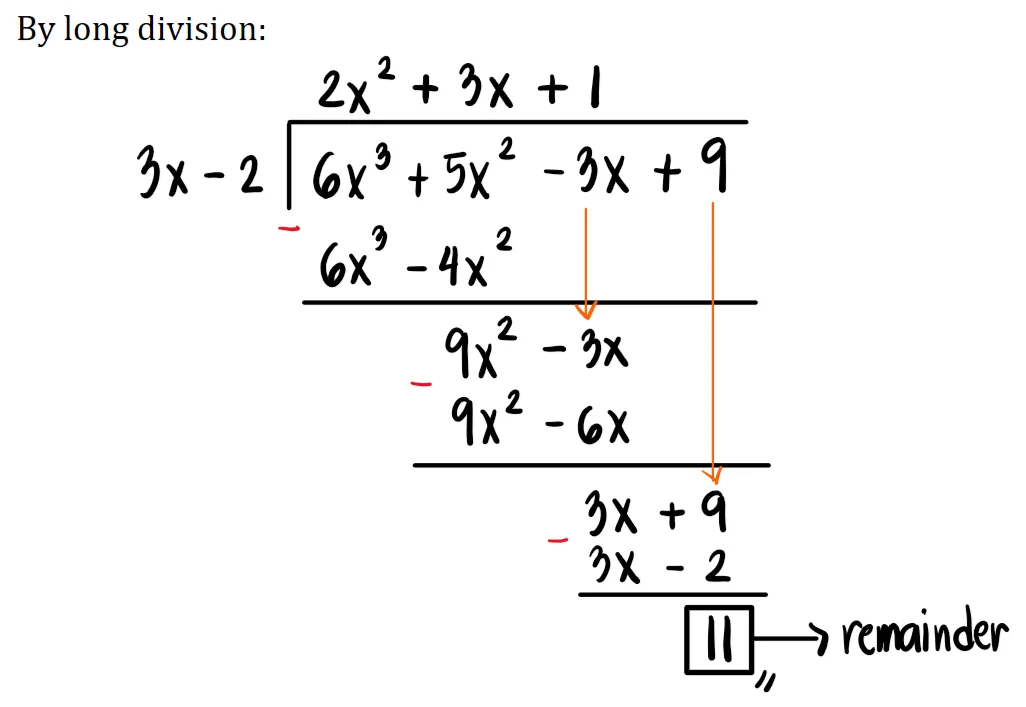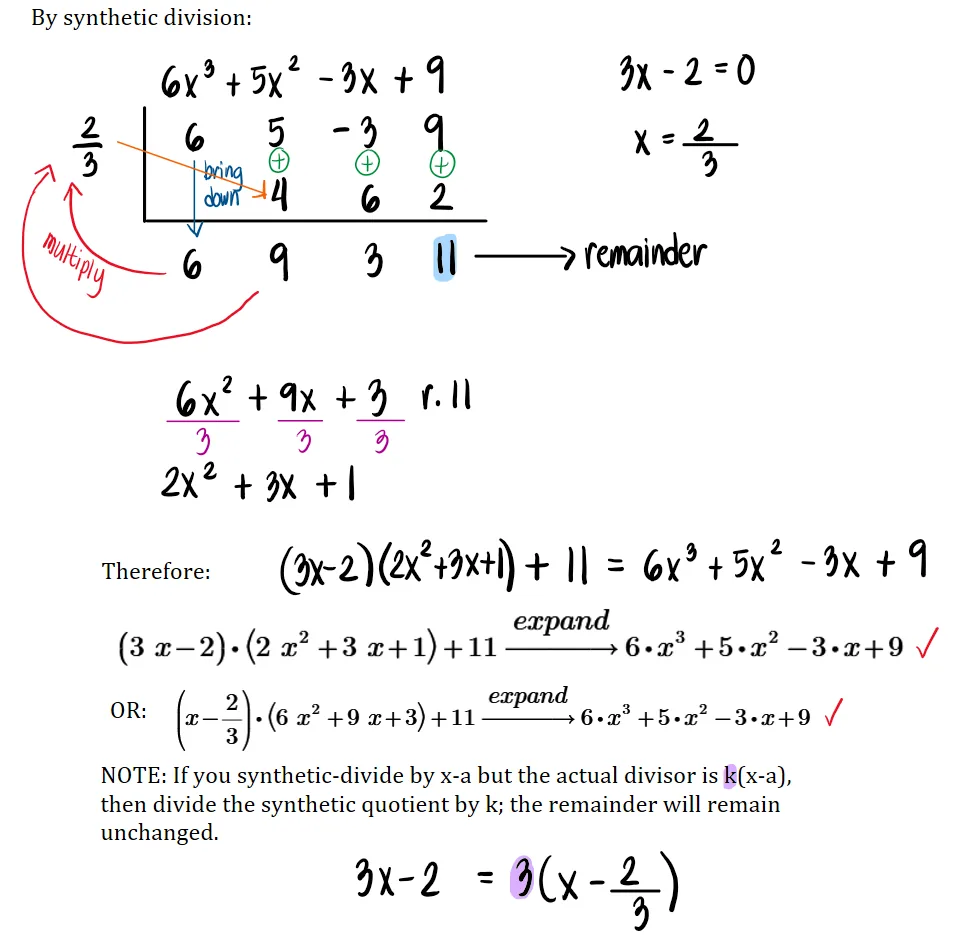Remainder and Factor Theorem
The Remainder Theorem and Factor Theorem are essential tools in polynomial algebra. They allow us to evaluate polynomials quickly and determine whether a given binomial is a factor of the polynomial, without performing full division.
Remainder Theorem:
If a polynomial $f(x)$ is divided by a linear divisor of the form $(x - c)$, the remainder is simply:
This means you can find the remainder by directly substituting $x = c$ into the polynomial, avoiding long division.
Factor Theorem:
A special case of the Remainder Theorem: If $f(c) = 0$, then $(x - c)$ is a factor of $f(x)$.
This theorem is commonly used to find roots or to start factoring higher-degree polynomials.
How They Work Together:
- Use the Remainder Theorem to test potential roots quickly.
- If the result is zero, you've also confirmed a factor via the Factor Theorem.
- After identifying a factor, you can reduce the polynomial via division or synthetic division.
These theorems simplify root-finding and polynomial factoring, especially for higher-order polynomials in engineering equations or signal analysis.
































































